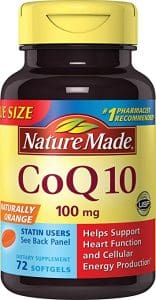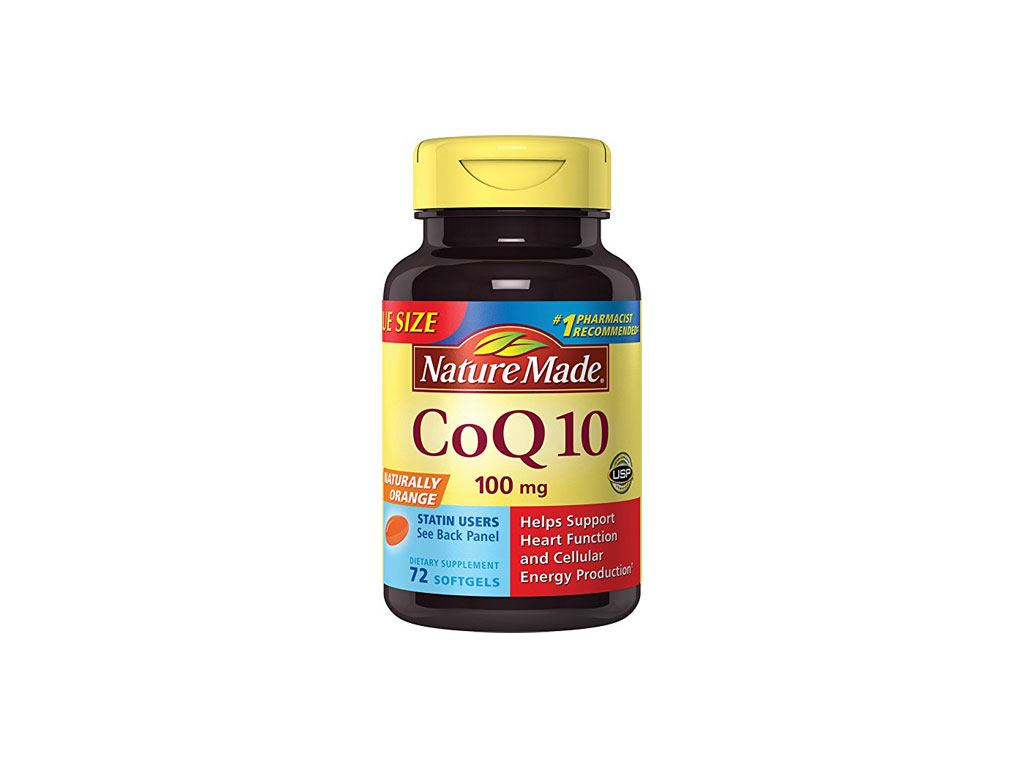
It’s been around forever, but recently started gaining much more attention, especially in athletic circles. Here’s what you need to know about COQ10.
What is COQ10?
You may have seen it in the doctor’s office, at the pharmacy or even at your local pet store. COQ10, or Coenzyme Q10t, is a fat-soluble, vitamin-like compound your body naturally makes and stores in the mitochondria of your cells. It helps the mitochondria produce energy, and also protects your cells from free radicals and wear-and-tear damage. COQ10 is often called a “coenzyme” because it also helps other enzymes break down food (and increases the absorption rate of other important nutrients, like vitamins C and E).
Basically, COQ10 may be one of the most important undercover agents working hard to keep you healthy. And if you’re not taking a COQ10 supplement, you might get a major boost if you start doing so.
Why take COQ10?
Even for healthy people, COQ10 is a crucial enzyme that helps produce energy and keeps cells young. Research shows that taking a COQ10 supplement can reduce inflammation, reverse oxidative damage at the cellular level, and even prevent certain types of diabetes by stimulating the breakdown of fats. Other studies are examining the benefits of COQ10 for migraines, hypertension, skin damage, fertility disorders, brain health and more.
Coenzyme Q10 has gained popularity for its multiple benefits in cardiovascular health. The heart is one of the hardest working muscles in the body, even when you’re at rest. CoQ10 helps the natural movement of circulation, supporting normal blood pressure and heart function.
COQ10 for a workout boost
COQ10 has become a mainstay in the fitness world, where top athletes and regular fitness enthusiasts alike have long been using it to supplement their fitness regimens.
Because it supports energy production and neutralizes damaging free radicals, both of which are crucial to performance and muscle recovery, COQ10 is an ideal supplement to optimize the results of your strenuous exercise routines, like running or weight-lifting.
A study published in the Journal of the International Society of Sports Nutrition found that taking 300 mg dose of COQ10 resulted in significantly improved physical performance with less fatigue and faster recovery. Another study tested how COQQ10 affects power output, finding that the supplemented group experienced “statistically significant” enhanced peak power in comparison to those training without it.
COQ10’s multiple roles in producing energy, repairing cells and supporting muscle recovery make it an ideal choice for anyone who wants to get the most out of their workout and achieve their fitness goals.
How can you tell if you’re COQ10 deficient?
COQ10 production occurs naturally, but the amount your body makes decreases as you get older—just when your body needs it more than ever. Other causes of COQ10 deficiency include heart disease, Vitamin B deficiency, genetic preconditions and statin treatments commonly used to lower cholesterol. Without sufficient COQ10 in the body, the aging process speeds up; your cell walls break down faster and become vulnerable. And that’s definitely not a good thing.
For people with a substantial deficiency, that can translate to muscle aches and pains, chronic fatigue, memory problems, mood swings, cardiovascular disease and even heart failure. Severe COQ10 deficiency is rare, but it’s detectable through an enzyme blood test. Over 40 years old? If you’re in that age bracket and have chronic diseases, or are experiencing any of the symptoms mentioned above, you should request a blood test to screen for COQ10 deficiency.
Where to find COQ10
Luckily, this essential enzyme is found in many foods you already eat; many meats, nuts, and vegetable oils contain COQ10. You can supplement your diet with foods especially high in COQ10, such as fatty fish like tuna and sardines and organ meats such as liver and heart.
If the idea of eating liver and beef hearts is unappealing to you, don’t worry. A range of supplements containing COQ10 is widely available in capsule, powder, liquid and pill form. As for how much to take, there is no established ideal dose of CoQ10. But a typical daily dose is 100 milligrams to 200 milligrams. Since CoQ10 is made naturally in your body, it generally has a high safety profile. No studies have uncovered any serious side effects of supplementing with CoQ10 in healthy individuals.
As with any change you’re making to your diet and nutrition, it’s important to consult with your doctor about your choices—even if you’re healthy. With all the benefits COQ10 has to offer, the right supplement could have a big impact on your overall wellness and vitality. Expect to see even more research on this amazing coenzyme in the months and years to come.
I’m not just a supplement analyst. I’m an extremely qualified one! I am a Certified Nutrition Coach (CNC) and actually received my certification directly from the National Academy of Sports Medicine. I am also a Nutrition & Wellness Consultant, certified by the American Fitness Professionals Association (AFPA).


